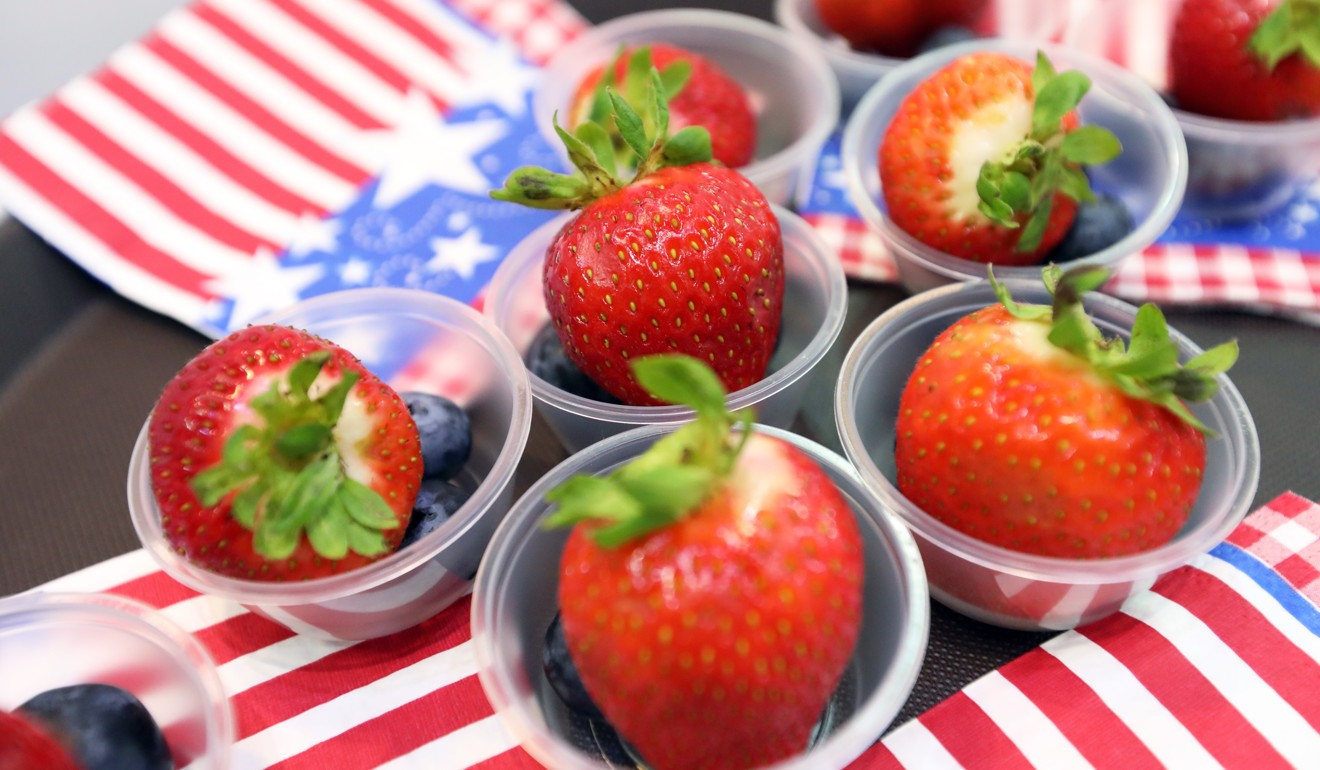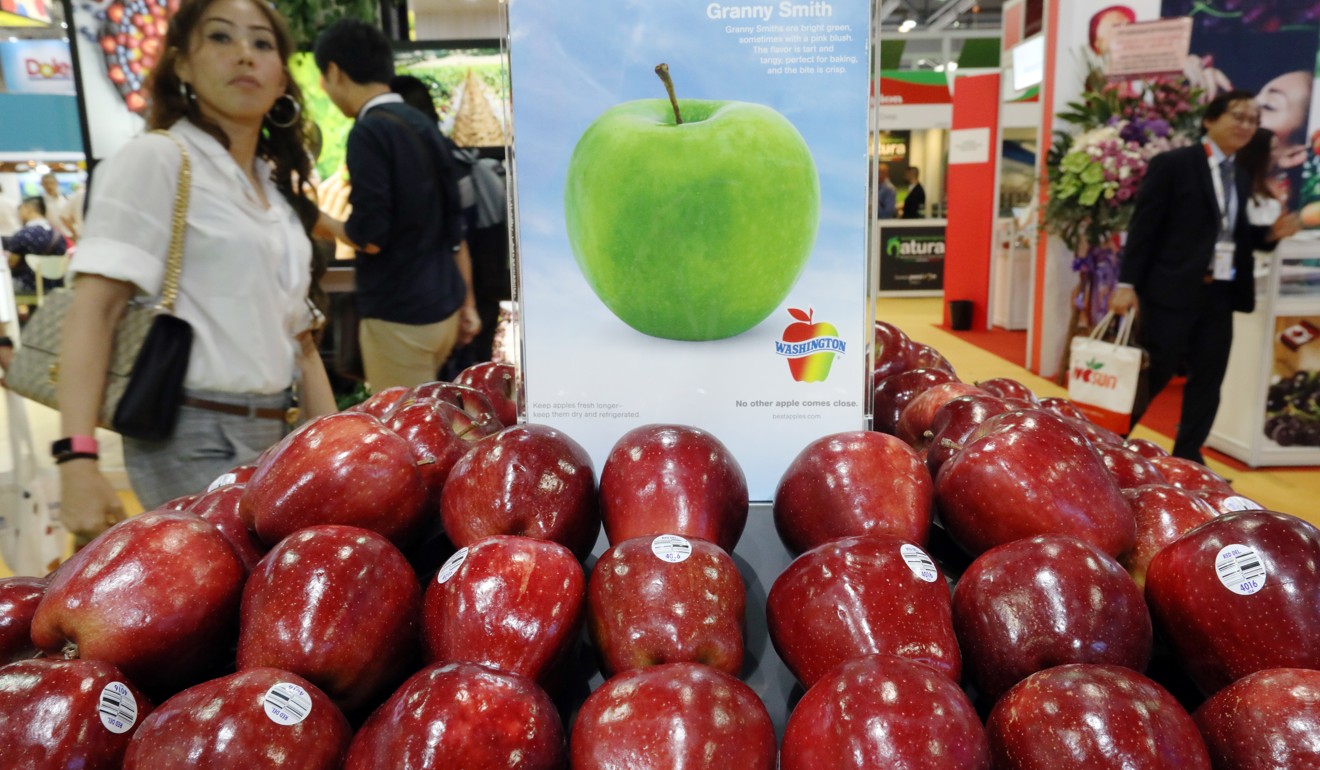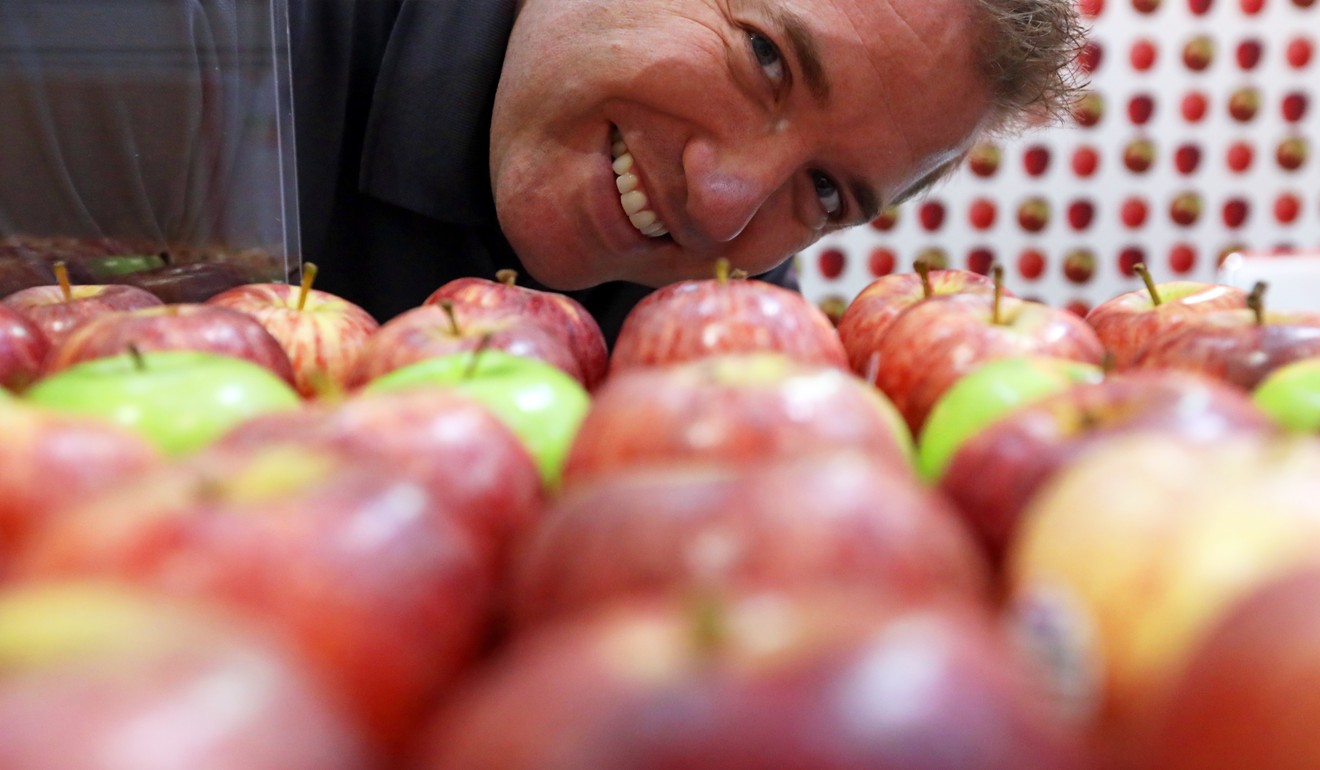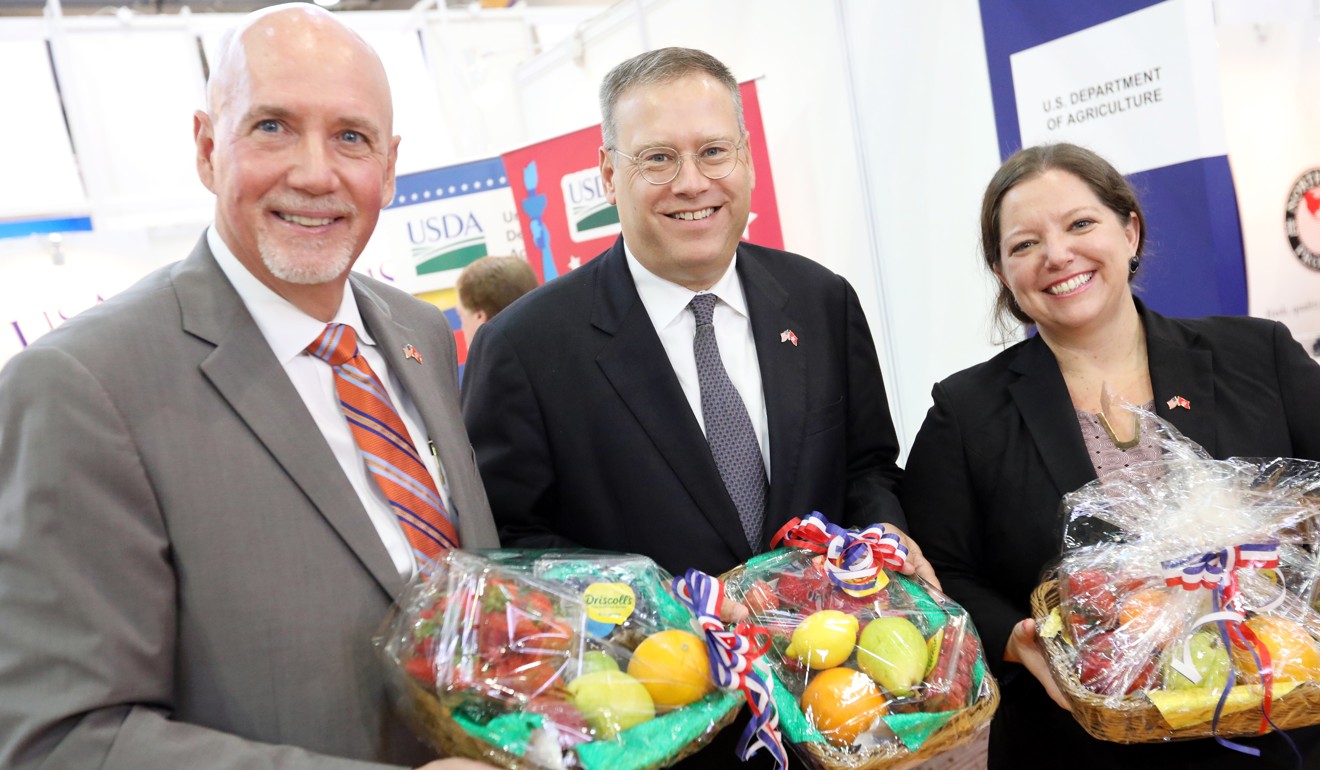
Fears for future at Hong Kong AsiaWorld-Expo fruit fair as American firms hit by US-China trade war
US agricultural official says impact from tariffs will be ‘modest’, but exhibitors say they have been forced to seek new markets
US fruit exporters should expect only a “modest” hit from the country’s escalating trade war with China, an American agricultural official insisted on Wednesday as a three-day produce fair kicked off at Hong Kong’s AsiaWorld-Expo.
But US retailers at Asia Fruit Logistica 2018 said they had been looking for alternative markets in anticipation of damage to their businesses.
Ken Isley, administrator of the US government’s Foreign Agricultural Service, said the impact of tariffs would be limited as the US farming industry was “very strong” and there were “many, many other markets” to sell to.
Fresh and frozen agricultural produce is among a long list of American goods subject to extra import tariffs in China since Beijing and Washington in July imposed tariffs on each other’s goods.
Particularly caught in the crossfire have been exporters of American apples and pears, who stand to suffer further from a strong US dollar.
Isley conceded China was an “important market”, to which the US exported US$20 billion worth of agricultural goods last year.

“There will be some [impact] on some commodities, but as a whole, it will be very modest,” he said.
Producers were expanding their horizons to Southeast Asian countries and Africa as well as maintaining links with existing trading partners in Latin America, he added.
“The US has a very diverse set of agricultural products that have unique fits in different parts of the world,” Isley said.
Trade war is good news for Hong Kong’s fruit lovers as tariffs drive down cost of American cherries
US President Donald Trump imposed 25 per cent tariffs on Chinese goods worth US$34 billion in July, and Beijing retaliated in kind.
A 25 per cent tariff on a further batch of goods worth US$16 billion took effect last month, prompting an equivalent response from China.

The US is widely expected to go further by imposing 25 per cent tariffs on an additional US$200 billion of Chinese goods as early as this week. Trump has even threatened to place a levy on all US$500 billion worth of Chinese imports to the United States.
At the Hong Kong trade show on Wednesday, US fruit retailers expressed their concerns over the trade tensions, with some anticipating a knock to their business.
US Consul General Kurt Tong dismisses Hong Kong National Party’s call to punish city by applying US-China trade war tariffs
Lynsey Kennedy, international marketing manager of USA Pears, said the taxes firms were subject to had hit 50 per cent.
“At our peak, I think we had about 220,000 boxes [shipping to China], which was in the 2013-14 season. I think for this season, it would be lucky if we get a few thousand,” she said.
Kennedy argued the sector had to find new markets, such as Cambodia and Myanmar.

Susan Day, international marketing vice-president of the California Table Grape Commission, said the grape sector had not yet felt the hit because sale volumes were low across the board at this time of year.
But she was concerned about the near future.
“We are not expecting an increase in volume, that’s for sure,” she said.
The real target of Trump’s trade war is ‘Made in China 2025’
Apples are also on China’s tariff list. Todd Sanders, chairman of the US Apple Export Council, said China had been a great market but the tariffs would slow trade.
“Anytime a market closes or has a tariff applied to it, those apples now have to go to other markets, and that in turn puts pressure on other markets,” he said.

“If the trade disputes are not solved or finalised, the unknown is what makes people nervous.”
Kurt Tong, the US consul general in Hong Kong, attending the AsiaWorld-Expo fair on Wednesday, said the US had no plans to end its differential trade treatment for the city in place under the US-Hong Kong Policy Act.
“We’ve already been very clear on that,” he said. “The degree of autonomy Hong Kong enjoys is still more than sufficient for the policy act to remain in force.”

